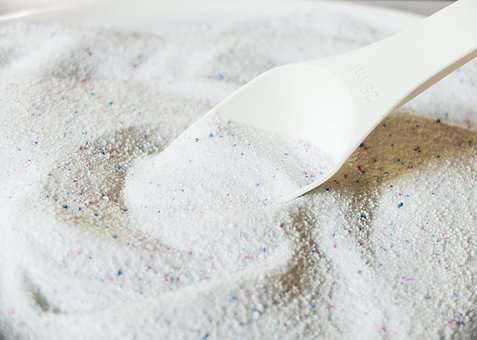Is Protein Powder Good For You? Pros and Cons
Is Protein Powder Good For You ? Pros and Cons . Protein powders are a popular way to get more protein into your diet. They come in a variety of flavors and can be easily mixed with water or milk to make a shake.
Choosing the best type of protein powder is key to ensuring you’re getting the nutrition you need. It’s important to consider which protein powders are vegan or gluten-free, how much they contain and whether or not they are third-party tested.
Pros
Protein is a macronutrient that’s important for everyone, but it’s particularly vital for athletes who need to build muscle. It also helps people maintain a healthy weight by keeping the body’s fluid balance and regulating hormone levels.
The best way to get your daily protein is through a variety of sources, including lean meats, fish, eggs, beans and vegetables. However, many people don’t eat enough protein to meet their needs.
This is where protein powder can be helpful. It’s an easy and convenient way to ensure that you’re getting the right amount of protein, says Abby Grimm, MS, RDN, a sports dietitian at FWDfuel Sports Nutrition.
It can also help you reach your protein goals if you’re trying to lose weight. It also makes a great post-workout drink.
Some powders are even made from whole foods, like oats, nuts, and seeds. That means you’re also getting a variety of other nutrients and fiber.
Adding protein to your daily routine can help you feel more energized, reduce the chance of muscle soreness, and keep you feeling fuller longer. Plus, it can make you less likely to snack between meals.
You can add protein powder to a variety of foods and drinks, from smoothies to oatmeal to pancakes. The key is to look for powders that aren’t overloaded with sugar or added sweeteners and that have a simple, straightforward ingredient list.
For example, if you’re looking for plant-based protein, try powders from brown rice or quinoa. They’re both high in protein but are low in fat and carbs.
Some types of protein powder can be used before a workout to provide fuel for your muscles during exercise, helping you build more muscle faster. It can also be taken after a workout to help repair damaged muscles, prevent injury and promote growth.
The best way to use protein powder is to determine your daily goal for protein and make sure you are getting that amount from a variety of sources. Then, it’s a matter of mixing that protein with water or milk to create a shake, a drink or a breakfast cereal.
Cons
Protein is one of the most important nutrients for building muscle, maintaining lean body mass and keeping your metabolism in tip-top shape. It also helps manage blood sugar and keeps you feeling fuller for longer, so you’re less likely to reach for junk food or other less healthy foods.
When you drink a protein shake after a workout, it provides the extra energy you need to recover and build muscle. It can also help keep you from consuming too many carbs and unhealthy fats, which is great for weight loss.
Besides protein, most protein powders contain other ingredients, such as added fibers and vitamins or minerals, that you might not be getting from your diet. Some even include ergogenic aids, such as caffeine and taurine, which can help boost your workouts by speeding up your body’s recovery time after intense exercise.
If you have a sensitive stomach, some protein powders may upset it. They can contain ingredients that can cause bloating or gas, including high amounts of sodium, calcium and magnesium, as well as oats, corn, milk and other dairy products.
There are a variety of plant-based protein powders on the market, too, that offer a good balance of nutrients. They’re not as complete as animal-based powders, but they’re often much easier to digest and absorbed in the stomach than their counterparts.
It’s important to read the label, especially if you’re new to protein powders. Some can contain high levels of toxins, such as heavy metals and bisphenol-A (BPA), that can irritate your stomach and contribute to chronic inflammation, according to the Clean Label Project.
Some protein powders can be surprisingly high in calories, which is why it’s important to watch your portion sizes. This is especially true if you’re trying to lose weight.
Some protein powders have a lot of extra sugar and artificial sweeteners in them, which can add up to a significant number of extra calories per serving. However, if you want to stick with unflavored varieties, this doesn’t have to be an issue. There are also more streamlined options that focus solely on protein.
Bottom Line
Protein powders are one of the hottest trends in fitness today, and they can be a great way to get in more protein in your diet. They can also be a great option for people who don’t have a lot of time to prepare a nutritious meal and need to make sure they’re getting enough protein during the day.
Protein is an essential macronutrient that plays a role in many important processes within the body, including hormone regulation, hydration, and maintaining a healthy weight. It can also help you build and maintain strong muscles, improve skeletal health, and boost your immune system.
However, it’s vital to choose a quality protein supplement that has been tested for purity and strength. Check for seals from third-party testing organizations like NSF Certified for Sport or Informed Choice Sports.
Besides the nutrients it contains, protein also helps your body repair muscle after workouts and recover from injury. It can also help reduce inflammation in the body, which is a major factor in disease prevention and recovery.
The amount of protein you need for your body depends on your age, gender, activity level, and health. It’s a good idea to consume a variety of sources, including whole foods, so that you’re getting all the essential amino acids you need to be healthy.
A protein powder can be a convenient and tasty way to boost your protein intake, especially if you’re on the go and have little time to prepare a meal. But it’s a smart idea to calculate your protein needs and only supplement if you don’t meet them with whole food sources.
It’s also a good idea to check the label to see what other ingredients the protein powder has, as well as how much it contains. Look for products that are free from artificial sweeteners and added sugars, which can cause digestive issues and lead to weight gain if you consume too much of them.
Another thing to watch out for is heavy metal contamination, which is a common problem with some protein powders. These include mercury, lead, and arsenic.
Healthy Way to Use
Protein powder is one of the most popular nutrition supplements on the market. It can be used for a variety of reasons, from weight management to muscle building and is especially helpful for athletes who need to build lean muscle quickly.
However, there are some things you should know about protein powder before using it in your diet. Firstly, you should only use it as a supplement and should never use it as your sole source of protein.
Second, it’s important to read the label on any product you buy and look for any added ingredients that may not be natural or beneficial for your body. This includes food additives, dyes and other substances that you cannot see.
Third, you should make sure that the protein powder you choose is a high-quality product. This means it should be made from a variety of sources, contain no unnecessary or harmful ingredients, and be safe for consumption.
Fourth, it should be in a form that’s easy to digest. It should also be a complete protein, meaning that it contains all of the essential amino acids in a nutrient-dense form.
Fifth, it should be low in calories and fats. Lastly, it should have a minimal amount of sugars.
To make the most of protein powder, you should choose a high-quality product and drink it regularly throughout the day to improve your health and get the nutrients you need. Ideally, you should use it before or after a workout.




